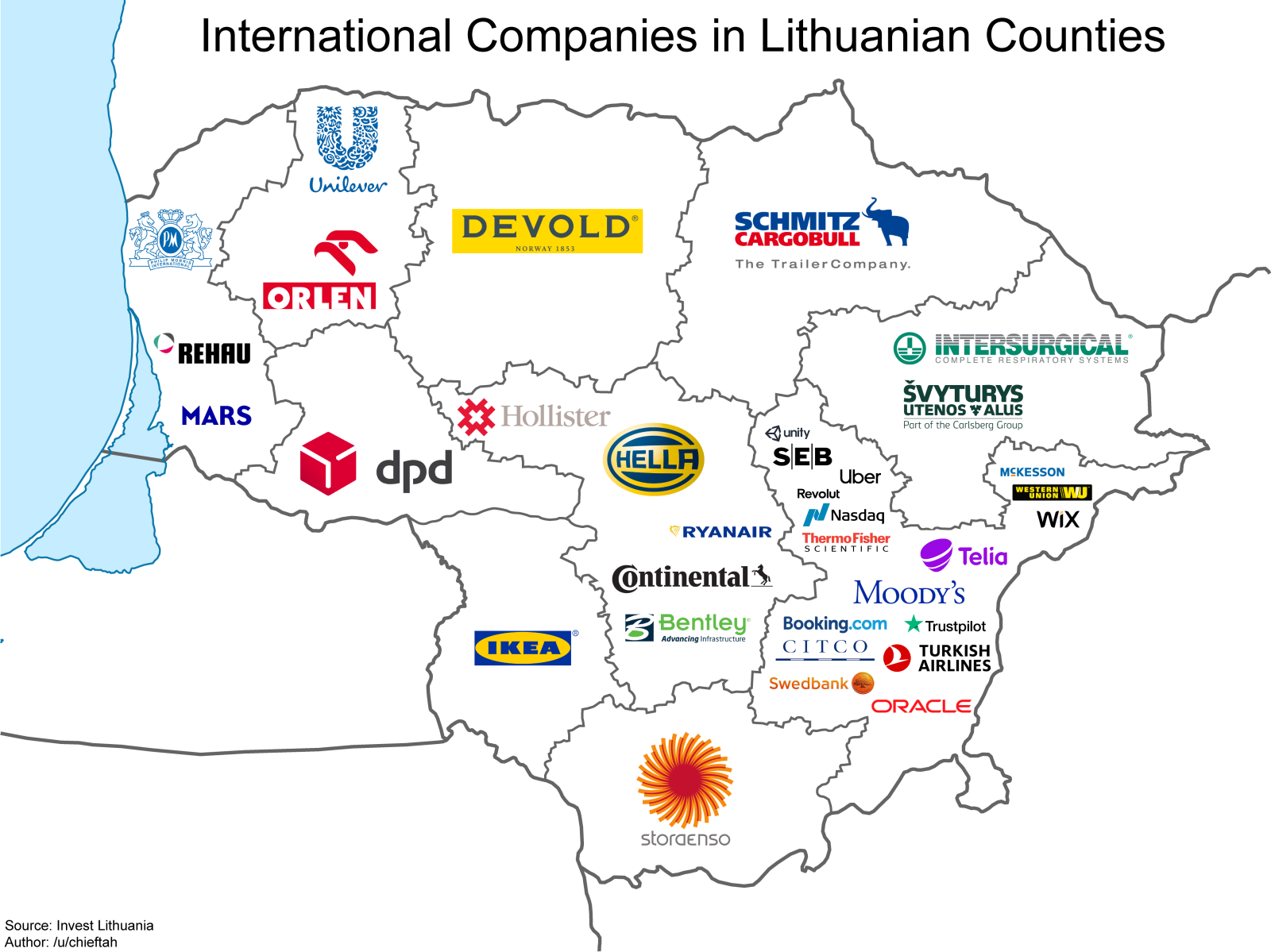
Lithuania’s main businesses
Lithuania, a small Baltic nation, has a dynamic and rapidly growing economy driven by diverse industries. Its strategic location, skilled workforce, and integration into the European Union make it an attractive destination for business. Here are Lithuania’s main businesses across various sectors:
1. Technology and Innovation
Lithuania has established itself as a hub for technology and innovation. The country boasts a thriving fintech sector, with Vilnius emerging as one of the fastest-growing fintech capitals in Europe. Companies like Revolut and TransferGo have operations here due to favorable regulatory frameworks and a supportive ecosystem. Startups in areas such as artificial intelligence, cybersecurity, and software development are also thriving, supported by initiatives like the Startup Visa Lithuania program.
2. Manufacturing and Industry
The manufacturing sector is one of Lithuania’s economic backbones. Key industries include:
Furniture Manufacturing: Lithuania is a leading exporter of furniture in Europe, with IKEA sourcing a significant portion of its products from Lithuanian manufacturers.
Machinery and Engineering: The production of industrial machinery, tools, and electrical equipment is significant.
Textiles: Lithuania’s textile and apparel industry focuses on high-quality production for export markets.
3. Logistics and Transportation
Lithuania’s geographic location at the crossroads of Europe makes it a vital logistics and transportation hub. The Port of Klaipėda, one of the most modern seaports in the Baltic region, handles substantial cargo volumes. The country’s well-developed road and rail networks support efficient trade routes connecting Eastern and Western Europe.
4. Life Sciences and Biotech
Lithuania is becoming a leader in the life sciences sector, with the industry growing by approximately 22% annually. Companies like Thermo Fisher Scientific operate in Lithuania, producing innovative solutions in biotechnology, biopharmaceuticals, and medical devices. The government has invested heavily in R&D, fostering collaborations between universities and private companies.
5. Agriculture and Food Production
Agriculture has a long tradition in Lithuania, focusing on organic and sustainable farming. Major exports include grain, dairy products, and meat. Food processing is also a significant industry, with Lithuanian brands gaining recognition for high-quality chocolate, beer, and dairy products. The country is a top exporter of organic products in Europe.
6. Renewable Energy
Lithuania is actively transitioning to renewable energy sources, focusing on wind, solar, and biomass. The country aims to produce 100% of its electricity from renewable sources by 2050. Companies in this sector are driving innovation and creating sustainable solutions.
7. Tourism and Hospitality
Lithuania’s rich history, stunning natural landscapes, and cultural heritage attract tourists from around the world. The capital, Vilnius, is a UNESCO World Heritage site, and attractions like Trakai Castle and the Curonian Spit draw significant visitors. The hospitality industry is growing, with a rise in boutique hotels and eco-tourism ventures.
8. Shared Services and Outsourcing
Lithuania is a preferred destination for shared services and business process outsourcing (BPO). Global companies like Barclays, Western Union, and Nasdaq have established service centers in the country due to its skilled multilingual workforce and competitive operating costs.
9. Creative Industries
The creative sector, including design, gaming, and film production, is growing rapidly. Lithuania’s gaming industry is recognized internationally, with companies like Nordcurrent producing popular games.
Conclusion
Lithuania’s diverse economy is supported by strong industries and a commitment to innovation. Its focus on technology, sustainability, and high-quality manufacturing has positioned it as a competitive player in the global market. The government’s pro-business policies and emphasis on education and R&D ensure continued growth across these sectors.



Leave a Reply